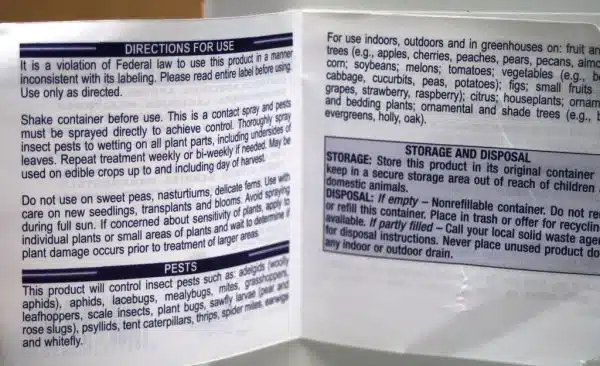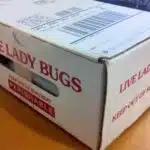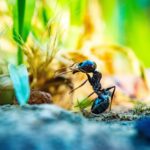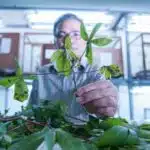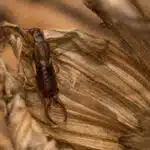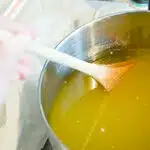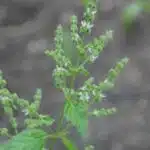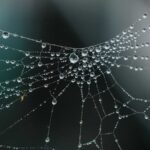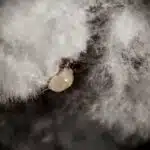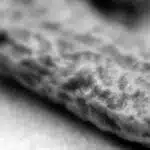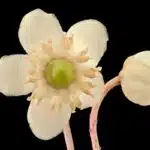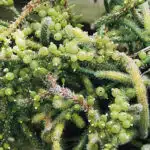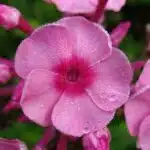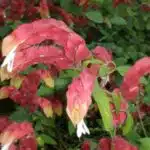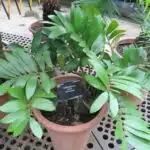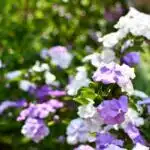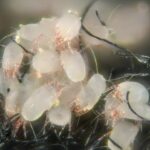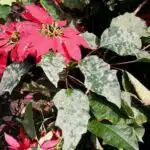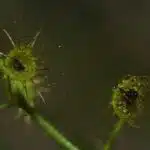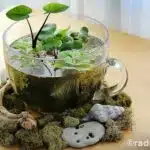Insecticidal soap is a popular and effective method of controlling pests in the garden. It is a natural alternative to chemical pesticides and can be used safely around plants, humans, and pets. Insecticidal soap works by dissolving the protective waxy coating on the bodies of insects, causing them to dehydrate and die.
The active ingredient in insecticidal soap is potassium salts of fatty acids. These salts are derived from natural sources such as animal fats and vegetable oils. When mixed with water, they create a solution that can be sprayed onto plants to kill insects on contact. In this article, we will explore the benefits of using insecticidal soap in your garden and provide a step-by-step guide for making your own at home.
The Benefits Of Using Natural Pest Control
In recent years, natural pest control has become increasingly popular among eco-friendly gardeners. Using natural pest control methods, such as insecticidal soap, can greatly reduce the need for harsh chemicals and protect beneficial insects that may be harmed by traditional pesticides. Additionally, natural pest control is often more cost-effective in the long run and can help to promote a healthier ecosystem in your garden.
One of the main benefits of using natural pest control is that it is safer for both people and the environment. Traditional chemical pesticides can be harmful to beneficial insects, pets, and even humans if not used properly. In contrast, natural pest control methods like insecticidal soap are made from all-natural ingredients that are generally safe for use around people and animals. By avoiding harsh chemicals, you can create a safer and healthier environment in your garden.
Another advantage of using natural pest control is that it can be just as effective as traditional pesticides when used correctly. Many commercial products now offer natural alternatives to chemical pesticides that contain essential oils or other plant-based ingredients that are toxic to pests but safe for other living organisms. By taking advantage of these options, you can effectively manage pests without causing harm to your garden or the environment.
By understanding how insecticidal soap works, you will be better equipped to use it effectively in your own garden. This powerful yet gentle method of controlling pests works by breaking down the outer layer of insects’ exoskeletons, causing them to dry out and die. With proper application and timing, insecticidal soap can be an effective tool in your arsenal against unwanted pests without causing harm to beneficial insects or other living organisms in your garden.
Understanding How Insecticidal Soap Works
Insecticidal soap is a natural and effective way to control pests in gardens and landscapes. The soap works by disrupting the insect’s cell membranes, ultimately leading to their dehydration and death. Understanding the soap formulation is key to creating an effective insecticidal soap that targets specific pests while minimizing harm to non-target organisms.
Soap-based insecticides have a lower toxicity than synthetic chemical pesticides, but they are not entirely harmless. While they target soft-bodied insects like aphids, whiteflies, and spider mites, they can also affect beneficial insects such as bees, ladybugs, and lacewings. To minimize the effects on non-target organisms, it is essential to apply the solution during early morning or late evening when these insects are less active.
There are three essential elements of an effective insecticidal soap: concentration, water quality, and application frequency. A 2% solution is usually sufficient for controlling pests without causing harm to plants or animals. The water used should be soft and free from chlorine or other chemicals that could interfere with the effectiveness of the soap. Finally, it is crucial to apply the solution every five to seven days until the infestation has been eliminated completely.
Understanding how insecticidal soap works can help gardeners create a safe and effective pest control strategy. The next step is knowing the active ingredient: potassium salts of fatty acids. This ingredient plays a significant role in disrupting cell membranes and dehydrating pests while being gentle on plants and animals.
The Active Ingredient: Potassium Salts Of Fatty Acids
The active ingredient in insecticidal soap is potassium salts of fatty acids, which are derived from natural sources such as vegetable oils and animal fats. This compound works by disrupting the cell membrane of insects, causing dehydration and ultimately leading to their death. Insecticidal soap is a popular alternative to chemical pesticides because it is less harmful to humans, pets, and the environment.
One of the main benefits of using potassium salts in insecticidal soap is that they are highly effective against a wide range of pests, including aphids, spider mites, whiteflies, and mealybugs. These compounds are also biodegradable, meaning they break down quickly in the environment without leaving harmful residues that can harm beneficial insects or contaminate soil and water sources. Additionally, potassium salts have low toxicity levels for mammals and birds, making them an ideal choice for gardeners who want to protect their plants without harming other wildlife.
Despite its many benefits, insecticidal soap does have some limitations when it comes to controlling certain types of pests. For example, it may not be as effective against larger insects like caterpillars or beetles that have tough outer shells or wax coatings that make them resistant to dehydration. Additionally, repeated use of insecticidal soap can lead to a buildup of salt residue on plant leaves, which can cause damage over time if not washed off regularly.
In conclusion, the use of potassium salts in insecticidal soap offers numerous benefits for gardeners looking for an effective and environmentally friendly way to control pest infestations. These compounds are highly effective against a wide range of pests while being safe for humans and animals. However, it’s important to keep in mind that insecticidal soap does have some limitations and may not be suitable for all types of pest infestations. In the next section, we will discuss some advantages of using insecticidal soap over chemical pesticides.
Advantages Of Insecticidal Soap Over Chemical Pesticides
Insecticidal soap is a safe and effective alternative to chemical pesticides for controlling soft-bodied pest insects such as aphids, mealybugs, whiteflies, and spider mites. Its active ingredient is typically potassium salts of fatty acids, which are generally considered to be less toxic to non-target organisms than conventional chemical pesticides. Not only is insecticidal soap a safer option, but it is also more cost-efficient because it is easy to make your own solution with a few simple ingredients. Furthermore, insecticidal soap has a much shorter pre-harvest interval, meaning it can be used closer to harvest time than many chemical pesticides.
Safety Benefits
Insecticidal soap is a non-toxic, organic alternative to chemical pesticides that offers several advantages in pest control. In particular, it is safer for humans, pets and wildlife when compared to traditional pesticides. Insecticidal soap works by disrupting the cell membranes of insects and suffocating them, rather than relying on toxic chemicals to kill them.
One of the main benefits of insecticidal soap over chemical pesticides is its safety for people and the environment. Chemical pesticides can harm wildlife such as birds, bees, and other beneficial insects that are essential for pollination and pest management in organic farming. Moreover, they can be harmful to human health if ingested or inhaled. In contrast, insecticidal soap is made from natural ingredients such as vegetable oils and potassium salts of fatty acids that are biodegradable and pose no risk to human health or the environment.
In addition to being environmentally friendly, insecticidal soap is also effective against a wide range of pests including aphids, mites, whiteflies and spider mites. Furthermore, it does not leave any harmful residues on crops or soil after application. This makes it ideal for use in organic farming systems where the emphasis is on sustainable agriculture practices that promote biodiversity and reduce environmental impact. Overall, using insecticidal soap is an excellent way to manage pests while promoting environmental sustainability without compromising on crop yield or quality.
Cost Efficiency
Another advantage of using insecticidal soap over chemical pesticides is its cost efficiency. Insecticidal soap can be easily made at home using simple ingredients such as dish soap, water, and vegetable oil. This makes it an affordable alternative to expensive chemical pesticides that may have harmful effects on the environment and human health.
Not only is insecticidal soap cost-effective for small-scale use, but it can also be used in larger-scale agricultural operations. Commercially available insecticidal soaps are also affordable and readily available for farmers and gardeners who want to avoid the use of chemicals in their pest management programs.
Overall, the cost efficiency of insecticidal soap makes it an attractive option for those looking for effective pest control solutions without breaking the bank. Its accessibility through DIY projects or commercially available products offers a more sustainable approach to pest management while promoting environmental sustainability.
Safety Considerations For Using Insecticidal Soap
Advantages of using insecticidal soap over chemical pesticides are numerous. However, safety precautions should be considered when handling this substance. Insecticidal soap is a relatively safe and non-toxic method of controlling pests, but it can still cause harm if not handled properly.
When making your own insecticidal soap, it is crucial to follow the handling guidelines provided on the recipe. Precautions such as wearing gloves, protective clothing, and avoiding contact with eyes and skin should be taken seriously. Ingestion of insecticidal soap can be harmful to humans and animals alike.
Furthermore, it is important to note that insecticidal soap may not be effective against all types of pests. Identifying the types of pests that can be controlled with this method will help in determining its effectiveness. It is advisable to seek professional advice before using insecticidal soap in case an alternative pest control measure may be more effective for the particular pest problem at hand.
Identifying The Types Of Pests Insecticidal Soap Can Control
Aphids, Whitefly, Spider Mites, Mealybugs, Thrips and Scale Insects are all susceptible to insecticidal soap. Leafhoppers, Fungus Gnats, Caterpillars, Beetles, Moths, Bugs, Plant Hoppers, Sawflies and Weevils can be effectively controlled using insecticidal soap as well. Insecticidal soap works by breaking down the exoskeleton of pests, causing them to dehydrate and die. It is important to use a soap that is specially formulated for insecticidal purposes, as regular soaps may not be effective. Making your own insecticidal soap is not recommended, as it is difficult to guarantee the concentration of active ingredients. Homemade insecticidal soaps may also damage plants if they are not properly balanced. Therefore, it is best to purchase a ready-made insecticidal soap from a reputable source.
Aphids
Aphids are a common pest in gardens and can cause significant damage to plants. These small insects feed on plant sap, causing leaves to wilt and curl. Aphids also excrete a sticky substance called honeydew, which can attract other pests like ants and lead to the growth of black mold. The presence of aphids is often indicated by the presence of ants or ladybugs, which are their natural predators.
Natural remedies such as insecticidal soap can effectively control aphid populations without the use of harmful chemicals. Insecticidal soap works by suffocating the aphids, disrupting their cellular membranes and ultimately leading to their death. Organic gardening practices also help to prevent aphid infestations by promoting healthy soil and plant growth.
To make your own insecticidal soap for controlling aphids, mix one tablespoon of mild liquid dish soap with one quart of water in a spray bottle. Shake well before using and apply directly to affected areas on plants. It is important to avoid using too much soap, as this can damage plant tissue. Regularly inspecting plants for signs of pests like aphids is key to preventing infestations from getting out of control and damaging your organic garden.
Whitefly
Another common pest that can be controlled using insecticidal soap is the whitefly. Whiteflies are tiny, winged insects that feed on the underside of leaves, causing them to yellow and eventually die. They also excrete honeydew, which can lead to the growth of black mold and attract other pests like ants. The presence of whiteflies can be identified by their small size, white or yellow wings, and the sticky residue they leave behind.
Natural pest control solutions for whitefly management include using insecticidal soap or neem oil. These treatments work by suffocating the whiteflies and disrupting their cellular membranes, leading to their eventual death. Organic gardening practices such as promoting healthy soil and plant growth also help to prevent infestations from occurring in the first place.
Regularly inspecting plants for signs of pests like whiteflies is key to preventing infestations from getting out of control. Removing affected leaves or plants, practicing crop rotation, and introducing natural predators like ladybugs can also help with whitefly management. By utilizing natural pest control solutions like insecticidal soap or neem oil and incorporating organic gardening practices, gardeners can effectively manage both aphids and whiteflies without harming the environment or exposing themselves to harmful chemicals.
Spider Mites
Another common pest that can be controlled using insecticidal soap is the spider mite. Spider mites are tiny arachnids that feed on the sap of plants, causing discoloration and eventually death. They are often difficult to identify as they are very small, but signs of their presence include visible webbing on leaves and a stippling effect on the surface of the leaves.
Spider mite prevention is key to avoiding infestations in the first place. This can be achieved by practicing good plant hygiene, such as removing any dead or diseased plant material and regularly cleaning greenhouse surfaces. Introducing predatory insects like ladybugs or lacewings can also help to control spider mite populations naturally.
Treating spider mite infestations involves using insecticidal soap or neem oil, which work by suffocating the mites and disrupting their cellular membranes. It’s important to note that repeated applications may be necessary for effective control, as spider mites have a short life cycle and can quickly repopulate. Additionally, it’s essential to follow application instructions carefully and avoid using excessive amounts of pesticides, as this can harm beneficial insects and plants alike. By utilizing natural pest control solutions and taking preventative measures, gardeners can effectively manage spider mites without resorting to harmful chemical pesticides.
Understanding Plant Damage And How To Prevent It
As an entomologist, it is important to understand common plant pests in order to prevent plant damage. Common pests include aphids, whiteflies, spider mites, and mealybugs. These pests can cause damage by sucking the sap from leaves and stems or by transmitting viruses. By identifying these pests early on, you can prevent them from causing significant damage to your garden.
One natural way to protect your garden from these pests is through companion planting. Companion planting involves planting certain plants together that can repel or attract insects. For example, marigolds can repel aphids while attracting ladybugs which are natural predators of aphids. Additionally, using neem oil or garlic spray on plants can also deter pests without harming beneficial insects.
Preventing pest damage doesn’t have to involve harmful chemicals. In fact, using natural methods such as companion planting and insecticidal soap can be just as effective in preventing pest damage in your garden. In the next section, we will discuss the tools and materials needed for making insecticidal soap which is a safe and effective way to control common plant pests.
Tools And Materials Needed For Making Insecticidal Soap
Understanding plant damage and how to prevent it is crucial for anyone who wants to maintain a healthy garden. One of the most common problems that gardeners face is insect infestation. Insecticidal soap is a natural and effective way to control insect populations without damaging your plants.
To make your own insecticidal soap, you will need a few tools and ingredients. You can find most of these items at your local hardware or gardening store. The tools you will need include a spray bottle, measuring cups and spoons, mixing bowls, and a stirring utensil. The ingredients you will need are liquid soap, vegetable oil, and water.
Making your own insecticidal soap is a great way to save money and avoid harsh chemicals in commercial products. With just a few simple steps, you can create an effective solution that will keep insects at bay while protecting your plants. Keep reading for a step-by-step guide to making insecticidal soap at home.
Markdown list of 4 items:
- Natural alternative to chemical pesticides
- Cost-effective solution for pest control
- Easy to make with readily available ingredients
- Safe for use on plants without harmful side effects
Transition sentence into subsequent section: “Now that we have covered the necessary tools and ingredients needed for making insecticidal soap let’s dive into the step-by-step guide.”
Step-By-Step Guide To Making Insecticidal Soap
DIY soap making is a cost-effective and environmentally-friendly way to control pests in your garden. Insecticidal soap is a natural insecticide that can effectively manage small populations of soft-bodied insects such as aphids, spider mites, and whiteflies. It works by suffocating the insects through the removal of their protective wax coating.
To make your own insecticidal soap, you will need a few simple ingredients. Start by selecting a pure liquid soap that does not contain any fragrance or additives. Castile soap or dishwashing liquid are good options. Next, add one tablespoon of vegetable oil to one quart of water and mix well. Finally, add two tablespoons of the liquid soap to the mixture and stir gently.
After making your insecticidal soap solution, transfer it into a spray bottle for easy application in your garden. It is important to note that this solution should only be applied to plants during cool temperatures or in the early morning or late evening hours when the sun is not at its peak. This will prevent any potential damage to your plants from the heat of the day. Additionally, it is important to test this solution on a small area before applying it more broadly to ensure that it does not cause any damage or discoloration to your plants.
Transition: Now that you know how to make your own insecticidal soap, let’s explore how you can use it effectively in your garden without harming beneficial insects.
How To Use Insecticidal Soap In Your Garden
Using insecticidal soap in your garden can be a very effective way to control pests without harming the environment. This natural solution is made from plant-based ingredients and works by breaking down the protective coating on insects, causing them to dehydrate and eventually die. If you’re looking for an eco-friendly way to protect your fruit trees or vegetable garden from pests, insecticidal soap may be just what you need.
To use insecticidal soap for fruit trees, simply mix the solution according to the instructions on the label and apply it directly to the tree’s foliage. Be sure to cover both sides of the leaves thoroughly, as this is where many pests like to hide. For controlling pests in vegetable gardens, spray the solution directly onto the plants and surrounding soil. It’s important to note that while insecticidal soap is safe for humans and pets, it can also harm beneficial insects such as ladybugs and bees, so use with caution.
Here are some additional tips for using insecticidal soap effectively:
- Apply in early morning or late evening when temperatures are cooler
- Reapply after rain or heavy watering
- Test a small area before applying all over to make sure it won’t harm your plants
- Rotate with other pest control methods to prevent resistance
By following these guidelines, you can effectively use insecticidal soap to control pests in your garden while minimizing harm to both your plants and the environment. In the next section, we’ll discuss how to properly store and apply your homemade or store-bought insecticidal soap solution.
Storing And Applying Insecticidal Soap Solution
Applying insecticidal soap solution is a crucial step in controlling garden pests. Once the solution has been mixed, it should be applied to affected plants immediately. To apply, use a spray bottle and ensure that the plant’s foliage is thoroughly coated with the solution. It is essential to cover both sides of leaves as well as stems where insects may hide.
Proper storage of insecticidal soap solution is essential to maintain its effectiveness. The solution should be kept in a cool, dry place away from direct sunlight and extreme temperatures. Ideally, it should be used within 24 hours of mixing; otherwise, it may lose its potency or become contaminated by bacteria or fungi. If you need to store the solution for later use, make sure to label the container with the date and contents so that you can keep track of how long it has been stored.
By properly storing and applying insecticidal soap, you can effectively control pests without harming beneficial insects or the environment. However, it is important to note that insecticidal soap may not work on all types of insects or at all stages of their life cycle. In the next section, we will discuss common issues that arise when using insecticidal soap and how to troubleshoot them for optimal pest control.
Troubleshooting Common Issues When Using Insecticidal Soap
Common mistakes when using insecticidal soap can often lead to unsatisfactory results. It is important to note that not all insecticidal soaps are created equal, and different plants may require specific recipes. One common mistake is using a generic insecticidal soap on a plant that requires a plant-specific recipe. This can result in damage to the plant or ineffective pest control.
Another mistake is not properly diluting the insecticidal soap before application. Concentrated solutions can burn the leaves of plants or harm beneficial insects, such as bees and ladybugs. It is important to follow the instructions carefully and measure accurately when mixing your own solution.
Additionally, it is important to apply insecticidal soap at the right time. Insects must be present on the plant for the soap to be effective, so it should be applied when infestations begin to occur. Waiting too long to apply can result in severe damage to the plant and make pest control more difficult.
- Use caution when applying insecticidal soap near water sources, as it may harm aquatic life.
- Always wear gloves and protective clothing when handling concentrated solutions.
- Test a small area of your plant before applying insecticidal soap liberally.
- Consider alternative pest control methods, such as companion planting or introducing beneficial insects.
Understanding these common mistakes will help you achieve better results with your homemade insecticidal soap recipes. However, if you find that your current recipe isn’t working effectively for your specific plant, consider exploring alternative insecticidal soap recipes for different needs.
Alternative Insecticidal Soap Recipes For Different Needs
Homemade recipes for insecticidal soap are becoming popular among gardeners who want to avoid using chemical pesticides. These natural ingredients have been found to be effective in controlling pests without harming the environment. One of the most common insecticidal soap recipes is made by combining one tablespoon of dish soap with a gallon of water. This solution can be sprayed on plants to control soft-bodied insects such as aphids, mites, and whiteflies.
For those who want a more potent insecticidal soap, neem oil can be added to the mixture. Neem oil is known for its insect-repelling properties and has been used for centuries in Asia as a natural pesticide. To make this recipe, mix one tablespoon of neem oil with one tablespoon of dish soap and a gallon of water. This solution can be sprayed directly onto plants affected by hard-to-kill pests such as spider mites and thrips.
Another alternative recipe involves using essential oils instead of dish soap. A mixture of 10-15 drops of peppermint oil or tea tree oil with a quart of water can be sprayed on plants to repel pests such as ants, cockroaches, and spiders. This recipe not only controls pests but also adds a pleasant aroma to your garden.
Natural ingredients are proving to be an effective alternative to chemical pesticides in controlling pests in gardens. Homemade recipes using simple ingredients such as dish soap, neem oil, and essential oils can help prevent infestations without causing harm to the environment. In the following section, we will explore how these homemade solutions can also benefit indoor plants.
Using Insecticidal Soap For Indoor Plants
As discussed in the previous section, alternative insecticidal soap recipes can be used for different needs. However, using insecticidal soap is not limited to indoor plants. It can also be an effective solution for outdoor plant pests. Insecticidal soap is a safe and natural alternative to synthetic pesticides that can cause harm to the environment and beneficial insects.
To use insecticidal soap on outdoor plants, it is important to follow the same guidelines as indoor plants. First, test a small area of the plant for any adverse effects before applying it to the entire plant. Second, make sure to use a diluted solution of homemade insecticidal soap or a commercially available product. Third, apply it during cooler parts of the day when the sun is not directly shining on the plant.
The effectiveness of homemade insecticidal soap on outdoor plants depends on various factors such as pest infestation level, application frequency, and plant sensitivity. However, many gardeners have reported success in controlling pests such as aphids, spider mites, and whiteflies with this natural solution. Overall, using insecticidal soap can be an eco-friendly and safe option for pest control in your garden.
In conclusion, using insecticidal soap for both indoor and outdoor plants can provide a safe and effective pest control solution without causing harm to beneficial insects or the environment. Homemade insecticidal soaps are easy to make and cost-effective compared to commercial products. By following proper application guidelines and being consistent with treatment frequency, you can successfully manage pests in your garden without resorting to harmful synthetic pesticides.
Conclusion: A Safe And Effective Pest Control Solution
Insecticidal soap is a safe and effective pest control solution that has been utilized for centuries. It works by suffocating pests, such as aphids, mites, and whiteflies, without harming beneficial insects or plants. Unlike chemical pesticides, insecticidal soap is biodegradable and does not leave toxic residues on plants or in soil.
To make your own insecticidal soap at home, you can use a simple DIY recipe that involves mixing together water, liquid soap, and vegetable oil. This mixture can be sprayed onto infested plants using a garden sprayer or spray bottle. While homemade insecticidal soap may not be as potent as commercial varieties, it is still an effective alternative that is both affordable and environmentally friendly.
In terms of environmental impact, insecticidal soap is considered one of the safest options for pest control. It does not harm bees or other pollinators and does not pose a threat to humans or pets when used properly. Additionally, because it breaks down quickly in the environment, it does not contribute to long-term pollution or harm ecosystems. Overall, insecticidal soap is a valuable tool for gardeners looking to control pests without resorting to harmful chemicals.
Conclusion
The use of natural pest control solutions has been gaining popularity in recent years, and insecticidal soap is one such solution that has proven to be both safe and effective. Understanding how this soap works requires knowledge about its active ingredient, potassium salts of fatty acids. Unlike chemical pesticides, insecticidal soap offers several advantages such as being non-toxic to humans and animals, biodegradable, and easy to make at home.
Safety considerations when using insecticidal soap include wearing protective gear, avoiding spraying on hot or dry plants, and keeping it away from children and pets. Troubleshooting common issues when using the soap involves adjusting the concentration or frequency of application. Alternative recipes for different needs include adding essential oils or other natural ingredients for added potency.
In conclusion, insecticidal soap is a valuable tool in the fight against pests that can damage our gardens and indoor plants. As entomologists or insect control experts would attest to, its effectiveness lies in its ability to break down the outer protective layer of insects, causing them to dehydrate and die. By using natural solutions like insecticidal soap, we can protect our plants without harming ourselves or the environment. Let us embrace this safe and effective pest control solution as we continue to work towards a more sustainable future.
Image Credits
- “Insecticidal Soap Directions – By Chris_Alberti- CCBy2.0” by Chris Alberti (featured)

